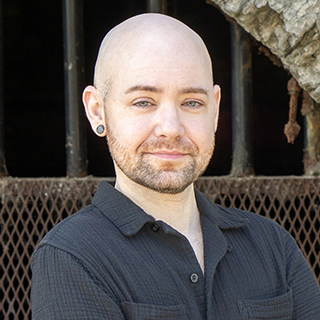Working with a social justice foundation happens both inside and outside the therapy room. It is an ongoing process without an end point. Here are some of the ways I do it.
I seek to understand your feelings, thoughts, and actions through the context of your lived experience as informed by gender identity, race, ethnicity, sexual orientation, class, ability, body size, relational style, neurodivergence, and everything else that makes you you.
Social justice therapy holds space for the rage, grief, fear, and trauma of living in a marginalized body or mind. I reject colonial conceptions of individual pathology and place responsibility for trauma and suffering where it belongs: on the environment. My approach to therapy is about healing, not treatment, based on your own ways of knowing rather than on studies and data.
I will never claim to know better than you what you need to heal. You have inherent wisdom about yourself. Working from a liberation-focused perspective means that I center your agency and consent. I offer suggestions for our work, but never tell you what’s right. I am transparent with you about modalities I might want to use. I’m happy to be more directive—if you want me to. We are a team. You know some things, I know some things, and we collaborate in support of what you want for yourself.
I reject the idea of cultural competence and embrace the idea of cultural humility. I can never be competent in someone else’s culture. What I can do is learn about it through listening, educating myself, and engaging respectfully with others from that culture. There will always be layers I do not understand. (More about a cultural humility stance.)
I don’t subscribe to cognitive-behavioral models of therapy. I believe that simply imposing thought changes from above does little to honor the very real fear, anger, and isolation you might be experiencing as a result of marginalization or systemic violence. Thoughts and actions stem from emotions and core needs. If we attend to your somatic and emotional experiences, this can gradually lead to changes in your thinking and behavior—if such changes are part of your goals.
I educate myself about racism, ableism, sexism, transphobia, classism, colonialism and imperialism, and other forms of marginalization and oppression operating both historically and currently. I learn how those forces play out interpersonally, economically, and societally to move closer to understanding the effects those systems have on you and on me, knowing that I will never fully understand experiences outside my own.
I explore my own experiences of privilege and marginalization to learn how they show up in my interactions. Otherwise, I risk reproducing a power-over dynamic, minimizing your experiences, and introducing microaggressions. I will be open about my own identities, and we will talk about how the privilege or power differentials in the room influence our work together. And I will own my mistakes, because I’m not perfect and I’ll fuck up at some point.
The field of psychology is founded on the ideas of cis, white, heterosexual men and its history is full of misdiagnosis based on pathologizing responses to oppression and cultural differences. Anti-oppressive therapy practice offers an alternative way that understands your struggles as inevitable outcomes of trauma, developmental and attachment wounds, and the struggles of existing in a world that does not support your ability to thrive. I take trainings that offer non-pathologizing models of understanding the human psyche (and recognize that even those trainings are generally created by cis white men, and thus have shortcomings).
For more privileged folks, social justice therapy can be about moving through paralysis, guilt, shame, and other emotions related to privilege and power. I strive to create a relationship that can hold you as you process your own wounds, sit with feelings about your own privilege, get free from shame and stuckness, and find ways to live your values. This can be hard, scary work (I know because I do it), but so rewarding. And while we’re at it, let’s talk about the ways you’ve also been harmed by social conditioning and structural power differentials.
Social justice practice recognizes that healing does not happen in isolation. Liberation is about community. One of my goals is to help you move through the pain of your past and the fears keeping you isolated so that you can reach out and build the connections we all need. Healing happens in relationship to others, to cultural practices, and to connection with the natural world.
It’s also important to attend to the resilience, joy, connection, and hope that sustain us. The revolution may be a long time coming, but right now we can liberate our minds and spirits from the conditioning that has harmed us. Joy is a form of resistance. And our liberation is bound up together.

